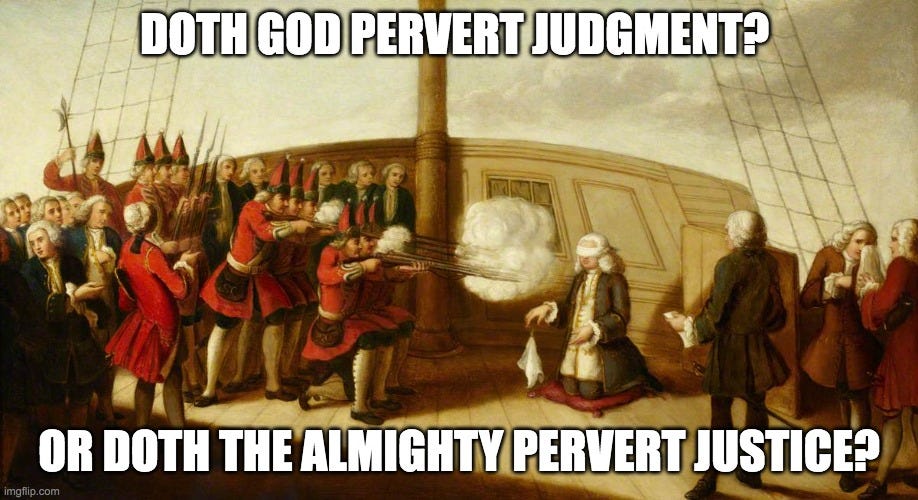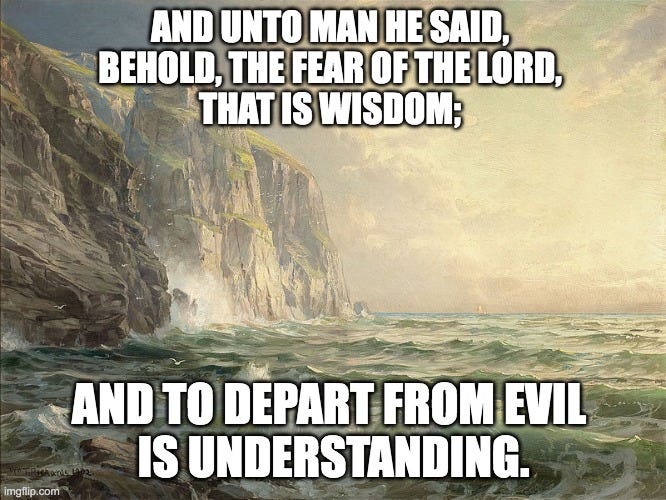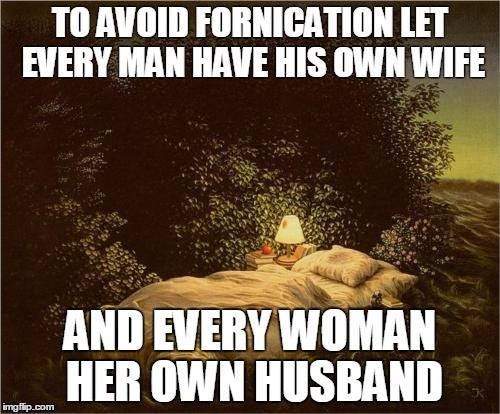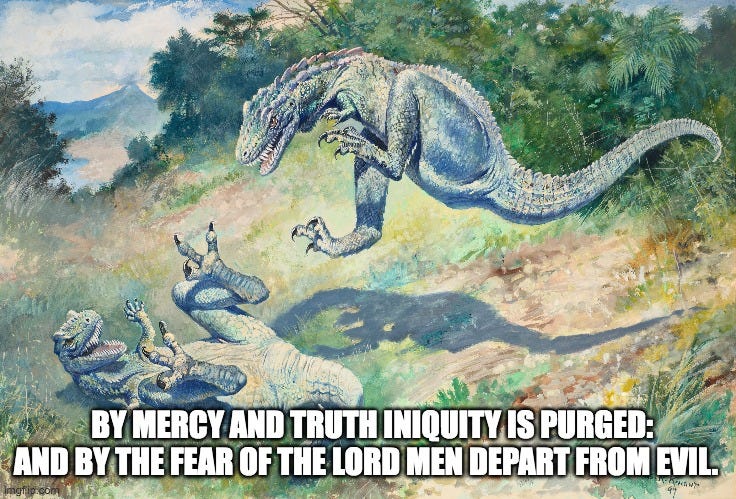A Piece of Pi
Defining Pi
I once heard a story, which may well be apocryphal1, about a politician who decided that they should pass a law setting pi to 3. It would be much easier on everyone, his reasoning went. It would be so much easier to multiply numbers by ‘3’ than by the infinitely long number ‘3.14…’.
If you had the perfect Pizza maker, who made his pizza as a perfect circle; and if, once baked, he cut it perfectly, with a perfectly straight line passing through the centre of the pizza and cutting it into two halves.
And then if the perfect engineer or carpenter or seamstress were to measure both the cut and the distance around the edge of the pizza, the ratio between the two would be ‘3.14…’. So if the cut were one foot long, then the outside of the pizza would measure ‘3.14…’. If the outside of the pizza was four feet long, then the cut would measure 4’/3.14… or 1.273239544735163…’
No matter how big or small the pizza was, as long as it was a perfect circle and the cut a perfectly straight line going through the centre, then the cut would equal the circumference (distance around the circle) divided by the infinitely long number ‘3.14…’. If it didn’t, it would be because the circle wasn’t perfectly circular, or the cut wasn’t perfectly straight, or the cut didn’t go through the centre, or you messed up with your measurements. (Or the table wasn’t perfectly flat).
This infinite number, 3.14…, we call ‘pi’. Not ‘pie’, as in ‘pizza pie’, but ‘pi’ as in… (a minute while I look it up)… the sixteenth letter of the Greek alphabet. Not sure why, as it isn’t round. And this infinite number has been the same since the beginning of time. It wasn’t passed into law by some ancient parliament; it wasn’t decided upon by some high council of mathematicians… it is a fact of nature. It took a while to figure it out, and still longer to calculate it, but it is a fact of nature.
Which is what made the politician such a laughing stock among educated humans. No matter how many laws that were passed, you can’t change the value of pi.
Oh, you could change the meaning of the word! You could forbid all mention of the Greek alphabet and reduce us to saying ‘the ratio between the diameter and the circumference of a circle’. You could execute all mathematicians and carpenters and everyone else who uses pi on a daily basis. (That would be a large number of people, actually.)
But you can’t change the value of pi.
Introduction
So, Fallible Father continues our exchange on the issues of Pizza, Sushi, God, and Morality. How important are religious beliefs? Are they mere preferences of academic interest? Or are they life and culture-changing?
Our discussion has been focused so far largely on morality: its existence, definition and the knowledge thereof; and this post will be no different. The problem so far is that we are talking about different things and the same thing at the same time. The politician who wished to transform pi into ‘3’ knew that pi was currently ‘3.14…’. He understood that it was used in calculations and that the fact that it was an infinite number made calculations rather tricky.
What he didn’t seem to realise was that ‘pi’ was real. It made no difference whatsoever what laws he passed… the ratio between the diameter of a circle and its circumference was and would remain ‘3.14…’. He might cause trains to crash, he might exile or imprison those who broke his insane law, but he wouldn’t change pi.
In our country, some have tried to redefine ‘marriage’. Good luck with that. Marriage is as real and as unchangeable as ‘pi’. In my story ‘Contract Marriage’ I examine some dystopic ideas of what sexual relations should be like but even in another galaxy, I can’t change what marriage actually is. I can only change how sinful man views it.
Our modern society is trying to tell us that boys can be girls and that men can menstruate. Thousands of years of wisdom… indeed common sense… indeed knowledge that two-year-olds learn instinctively… and our society is trying to insist that moral behaviour should discard. We cut the breasts off twelve year olds and boast that we live in an enlightened age.
Better, best, good
About a dozen times in his post, Fallible uses comparative value words. Here are some examples:
—if we expect all humanity to be their best selves, and act as morally as possible,
— try to help them be better, more moral, atheists
—we can pick the good (Yellow Tail sashimi and a solid spicy tuna roll) and leave the bad (pineapple pizza)
—Take the good from all that is offered
—By changing behavior to act more in line with what is right, the chances that they actually embrace a true Christian love, charity and morality increases
—includes acting in a more moral way.
Now, here is the thing about comparative words: they imply some standard and method of measurement. If I say that Joe is taller than Fred, this means either that I must have some objective way of measuring both Joe and Fred and have some objective meaning of ‘height’… or I am merely expressing a subjective preference for Joe over Fred.
The basketball scout comes back to the manager and says, “Well, he is only six foot six, but he is just fantastic at rebounds.” He says that in the context where both he and the manager have an objective meaning for ‘tall’ and ‘height’ and ‘six’. And ‘fantastic’ and ‘rebounds’.
Fallible says that our society is better than previous societies because we don’t have slaves. I disagree that we don’t have slaves. I think we have a slavery system that is far, far worse than existed in the antebellum south, and dramatically worse than existed in the Roman days.2 But my point here is that he must have been reasoning as follows:
1) Slavery is wrong
2) Our society doesn’t have slavery, these others did
ergo
3) Our society is better than those others.
I disagree with (2), but my point here is that he has nowhere to get (1). Unless there is an objective standard of morality that governs over both our society and theirs, that covers all societies and all history, then all he could be saying in (2) is his personal preference. That he prefers to live in a society that doesn’t have slaves.
To which previous societies could quite justifiably answer that they preferred to live in a society that did.
Existence, Knowledge, and Definition
I believe you are essentially arguing that no person can truly be moral without believing in God, and knowing His will.
This quote is fantastically revealing. It brings out a bit of the difference between quoting and summarising because his word ‘essentially’ merges three wildly different things that I hope I never merged myself. Let us go back to Webster:
Moral: 2. The quality of an action which renders it good; the conformity of an act to the divine law, or to the principles of rectitude. This conformity implies that the act must be performed by a free agent, and from a motive of obedience to the divine will. This is the strict theological and scriptural sense of morality But we often apply the word to actions which accord with justice and human laws, without reference to the motives form which they proceed.
Webster here lists several aspects of morality: an action in conformity to the divine law, an action performed by a free agent, and an action motivated by obedience to divine will. So when Fallible says ‘essentially’, the problem is that he merges all of these things, and comes out shorthanded.
Let us say that a man commits adultery. He sleeps with his neighbour’s wife. He has performed an immoral act.
Now let us say that a man chooses not to commit adultery. Has he performed a moral act? The answer must be that he has performed (or, in this case, not performed) a complex action, with several parts. The failure to commit adultery was an action in conformity to divine law. But he may have done it because he was afraid of getting caught. Well, then his not-adultery action was in conformity, but the not-desire-to-obey-God action wasn’t in conformity.
Suppose that the man that committed adultery then feels guilty and repents. Well, the guilt and repentance are moral acts.
In everything that we do there are a complex web of moral and immoral actions and motivations, knowledge and beliefs.
Religion
I will return to the subject of the complexity of morality in a second, but I need to deal with a small error in translation.
Here lies my great issue with God being the source of all morality. I am arguing, in the above points, that false morality absolutely exists, and one major source is attribution to God with no attempt to further understand. If we take a book, or a “holy man” at their word, we can be led away from true morality. In fact, at times, the Good Book encourages it (please see the Old Testament, specifically Deuteronomy 20 and Genesis 34). Is there any difference between this and the belief that all Jews must perish in the land of Israel?
There is a fatal flaw here. Indeed two.
1) He says, “If we take a book or a “holy man”…” This is a bit reductive. It needs to be expounded. It needs to be ‘If we take someone else, who we see as being a good moral teacher…” and realize that this could be anyone. It could be our father or mother. It could be a neighbor. It could be our drill instructor. In all of life, not merely in religion, we have the question of looking to learn about moral behavior from others.
2) “… at their word.” But not to this extent. Yes, there are ‘holy books’ that are treated (and in one case rightly so) as the Word of God. Inerrant, inspired, and all of that. But that is just a question of degree, not of kind. The child who does something because his father tells him to may, at some point, be forced to stand up and say, “No, I can’t do that… I think it is wrong.”. But he cannot, none of us can, imagine that he can reach moral understandings purely by meditating in his own head. The choice isn’t binary: believe others or decide for yourself. It is always one of degree and kind. Which others, to what extent, and how much do I have to decide totally on my own?
A Piece of Pi
Which brings us back to pi. And that foolish politician. And pizza and sushi and morality.
Is morality something which judges us, or is it something we judge? Is it subjective, or objective? Is it like pi or like pizza pie? Can you just take a slice, or is it an infinite and indivisible number?
Fallible states that he would like to chuck the whole law of Moses:
some traditions were less than stellar (slavery was a fairly universal tradition that comes to mind, but so was stoning people for sins, or the whole Law of Moses for that matter).
Or at least that is the way I read his ‘less than stellar’ designation. Leaving aside that it was (and is,) the law of God, I would ask how far he will willing to go with that?
God’s Law can be summarised in two headings: Love God, and Love your Neighbour.
Those two headings can be broken down into ten commandments:
I am the LORD thy God, which have brought thee out of the land of Egypt, out of the house of bondage. Thou shalt have no other gods before me.
Thou shalt not make unto thee any graven image, or any likeness of any thing that is in heaven above, or that is in the earth beneath, or that is in the water under the earth: Thou shalt not bow down thyself to them, nor serve them: for I the LORD thy God am a jealous God, visiting the iniquity of the fathers upon the children unto the third and fourth generation of them that hate me; And shewing mercy unto thousands of them that love me, and keep my commandments.
Thou shalt not take the name of the LORD thy God in vain; for the LORD will not hold him guiltless that taketh his name in vain.
Remember the sabbath day, to keep it holy. Six days shalt thou labour, and do all thy work: But the seventh day is the sabbath of the LORD thy God: in it thou shalt not do any work, thou, nor thy son, nor thy daughter, thy manservant, nor thy maidservant, nor thy cattle, nor thy stranger that is within thy gates: For in six days the LORD made heaven and earth, the sea, and all that in them is, and rested the seventh day: wherefore the LORD blessed the sabbath day, and hallowed it.
Honour thy father and thy mother: that thy days may be long upon the land which the LORD thy God giveth thee.
Thou shalt not kill.
Thou shalt not commit adultery.
Thou shalt not steal.
Thou shalt not bear false witness against thy neighbour.
Thou shalt not covet thy neighbour's house, thou shalt not covet thy neighbour's wife, nor his manservant, nor his maidservant, nor his ox, nor his ass, nor any thing that is thy neighbour's.
Exo 20:2-17
And these ten commandments further broken down, according to the Jews, into 613 commandments (I think they include the ten and the two, so you can revise the math as you wish) https://en.wikipedia.org/wiki/613_commandments
Does Fallible really wish to get rid of all of them?
Adultery
Suppose that I were to come home one day and find my wife and a neighbour lady at our dining room table, with cloth laid out, sewing machines, cutting and sewing busily. I might walk in, smile, wave, and say, “I hope you two are having fun. Is she staying for dinner?” and, upon receiving the answer, go back to my office and do some writing.
Now suppose that Fallible Father were to come home someday and find his wife and the neighbour’s husband going at it in his bed. Would Fallible smile, wave, and say, “I hope you two are having fun, is he staying for dinner?”
Is this one of the laws that Fallible wishes to get rid of?
No, we don’t agree
It seems to me that we are in agreement on two big things, and disagree on a third big one. Sushi, gravity, pizza and morality exist. We also know what they are. There is no disagreement there. How we define them is completely up in the air, and that is where I shall focus the majority of this.
I disagree that Fallible believes morality exists. Oh, I think he does understand it exists. It rests inside his heart, put there by God, perverted by sin. But his stated beliefs, the ones he uses to argue with, are not compatible with what is in his heart.
I disagree that he knows what it is. Oh, he does in his heart, his conscience, but not in his argument.
I don’t believe that sushi or pizza exist. Not in the way that gravity, pi, or morality exist. If a child were to come into dinner and see a bunch of noodles, arranged in a circle, with pizza sauce, meat, and cheese on top of them; and he were to say, “Oh, great, we’re having pizza!” we might grin and say, “Well, we normally call this spaghetti.” But we could just as well call it pizza. It might be confusing with friends and relatives but, in the end, the difference is purely subjective and linguistic.
Not so morality, pi, or gravity. Or God. They exist, unchangeable, regardless of our knowledge or definitions. They affect us constantly, unchangeably, regardless of whether we acknowledge them.
As I pass through my incarnations in every age and race,
I make my proper prostrations to the Gods of the Market Place.
Peering through reverent fingers I watch them flourish and fall,
And the Gods of the Copybook Headings, I notice, outlast them all.
We were living in trees when they met us. They showed us each in turn
That Water would certainly wet us, as Fire would certainly burn:
But we found them lacking in Uplift, Vision and Breadth of Mind,
So we left them to teach the Gorillas while we followed the March of Mankind.
We moved as the Spirit listed. They never altered their pace,
Being neither cloud nor wind-borne like the Gods of the Market Place,
But they always caught up with our progress, and presently word would come
That a tribe had been wiped off its icefield, or the lights had gone out in Rome.
With the Hopes that our World is built on they were utterly out of touch,
They denied that the Moon was Stilton; they denied she was even Dutch;
They denied that Wishes were Horses; they denied that a Pig had Wings;
So we worshipped the Gods of the Market Who promised these beautiful things.
When the Cambrian measures were forming, They promised perpetual peace.
They swore, if we gave them our weapons, that the wars of the tribes would cease.
But when we disarmed They sold us and delivered us bound to our foe,
And the Gods of the Copybook Headings said: "Stick to the Devil you know."
On the first Feminian Sandstones we were promised the Fuller Life
(Which started by loving our neighbour and ended by loving his wife)
Till our women had no more children and the men lost reason and faith,
And the Gods of the Copybook Headings said: "The Wages of Sin is Death."
In the Carboniferous Epoch we were promised abundance for all,
By robbing selected Peter to pay for collective Paul;
But, though we had plenty of money, there was nothing our money could buy,
And the Gods of the Copybook Headings said: "If you don't work you die."
Then the Gods of the Market tumbled, and their smooth-tongued wizards withdrew
And the hearts of the meanest were humbled and began to believe it was true
That All is not Gold that Glitters, and Two and Two make Four
And the Gods of the Copybook Headings limped up to explain it once more.
As it will be in the future, it was at the birth of Man
There are only four things certain since Social Progress began.
That the Dog returns to his Vomit and the Sow returns to her Mire,
And the burnt Fool's bandaged finger goes wabbling back to the Fire;
And that after this is accomplished, and the brave new world begins
When all men are paid for existing and no man must pay for his sins,
As surely as Water will wet us, as surely as Fire will burn,
The Gods of the Copybook Headings with terror and slaughter return!
Gods of the Copybook Headings
Rudyard Kipling
Conclusion
It would be perfectly possible, indeed I am sure it has happened, for some cook to work for days on a new pizza recipe. To perfect the sauce, calculate out the toppings, toss in some wonderful cheese. And then, after all that, for the cook to make the pizza, with the oven just right, just the right amount of time and draft and wood and all. And then to serve the pizza and have an aged Italian man in the party say, “Ah… now this is pizza!”
But that can never happen with pi, or gravity, or morality. The best that any human can do with these is to come to some slightly better understanding than most of their neighbours. You cannot invent a new morality any more than you can invent a new colour.
Morality exists outside of humanity and despite humanity. It cannot be created or destroyed by humanity; we can only attempt to understand and follow it. We live in constant rebellion to the God who created it, and can only obey it imperfectly and because of his grace.
I would be curious what your thoughts are on improving behaviour in a world that does not universally accept Jesus Christ as Lord and Savior.
Fallible Father proposes an interesting form of evangelism. He proposes that we bring the world to improved behaviour through our understanding of morality. That would all be well and good except for two critical things. We cannot understand or obey perfectly (and most of the time we don’t even come close), and the rebellious heart can only be turned by the Spirit of God.
And he proposes a new morality, a hollow morality. He proposes a morality without its vital core: a belief in God and in His Son Jesus Christ. He proposes an artificial, modern morality bereft of its roots in history. A morality without definition or reality, without the chief function of morality: judging wrong behaviour.
You come of the Lord Adam and the Lady Eve… And that is both honor enough to erect the head of the poorest beggar, and shame enough to bow the shoulders of the greatest emperor on earth. Be content.
CS Lewis, Prince Caspian
His search as such is bound to fail. God is the beginning of wisdom, and her end. The most perfect life, lived without God, is but filthy rags. The most vile life, turned to God, the true God, via His Holy Spirit, is beyond anything he can even envision. Or see… for now we see through a glass darkly.
He says that the world does not universally accept Jesus Christ as Lord and Savior. Well, as far as ‘Lord’ goes, one day they will:
Wherefore God also hath highly exalted him, and given him a name which is above every name:
That at the name of Jesus every knee should bow, of things in heaven, and things in earth, and things under the earth; And that every tongue should confess that Jesus Christ is Lord, to the glory of God the Father.
Phillipians 2:9-11
Fallible proposes a world in which we can do ‘better’ than our ancestors… without acknowledging that the word ‘better’ requires a measuring stick. It points to a standard of morality which, if it is to rise above our mere preference, must exist outside of ourselves, our society, and our time. When Fred and Joe compare height, they can’t each use different rulers and different definitions of ‘tall’. You cannot ask if Sue is more green than Joan is funny.
I began this article with the story about the legislature and pi to underline the point that some things are not ours to define. They are not ours to modify. They are only ours to attempt to understand and apply. Either morality is like that, or it is like a preference between pizza and sushi. Either morality stands outside of us, like Lady Wisdom, judging both ourselves, our neighbours, and our ancestors… or we are merely shoppers at HEB deciding between the varieties of sushi. Genghis Kahn liked sushi wrapped in seaweed, Wilberforce liked his with artificial crab meat.
Fallible writes his posts to his children, I write mine to the world at large. When he speaks to his children, what does he have to say to them? How important are his words? If they grow up to be prostitutes or suicide bombers… is that the same as if they grew up liking pizza with anchovies?
As for me and my house, we will serve the LORD.
Links
The knowledge of Pizza, Defintion of Sushi, and Existence of Food
Pizza Toss Let us watch an expert pizza maker. He makes hand-tossed original pizza and once disowned a cousin who put pineapple on a pizza. We watch him as he grabs a lump of dough and he tosses it into the air… and it falls down. Because… ‘gravity’.
Pizza, Sushi, and the Definition of Morality
·
OCT 31
Sushi, Pizza, and the Existence of God
·
OCT 24
Ground Rules
·
AUG 9
Quote, Misquote, and Steelman
·
NOV 14
Steelmen and Inconsistencies
·
AUG 2
On colour, colour vision, and breastfeeding
·
JUL 14
https://www.forbes.com/sites/kionasmith/2018/02/05/indianas-state-legislature-once-tried-to-legislate-the-value-of-pi/?sh=296c5ced260a
I have not written on this yet, I believe, but as far as I’m concerned being a prisoner in a modern US jail is worse than being a slave. Slaves had productive work, were out in normal society, often had wives and children which they got to spend time with… And we put people in cages.
From the Wikipedia: Incarceration in the United States is one of the primary means of punishment for crime in the United States. In 2023, over five million people are under supervision by the criminal justice system,[2][3] with nearly two million people incarcerated in state or federal prisons and local jails. The United States has the largest known prison population in the world.[4][5] Prison populations grew dramatically beginning in the 1970s, but began a decline around 2009, dropping 25% by year-end 2021.[6]


















When I sent you the link to the attempt to redefine Pi, I had expected you to read the article. Had you done so, you would have seen that it wasn't a single foolish politician, but rather an entire befuddled house of legislature, confronted by a foolish mathematician's attempt to collect royalties on an idiotic article in which he proposed a new and incorrect way to compute the constant. The attempt failed when an actual mathematician had a chance to read the bill.
Your point about the inability of human beings to redefine reality is well-taken, of course, but I didn't get the impression that your collocutor was trying to do that; rather, he is running into the struggle I think you are trying to point out, about how to understand and define morality. I also believe that you have made it harder to understand here and in previous articles, where you have cited mathematical and physical truths as exemplars of the idea you are proposing - of verifiable reality.
The difference is that those things are observable; the definition of morality is not. Morality does not declare something to be of a particular weight or size - it is inherently a value judgment. The difference that I think you should be arguing is relative morality vs. absolute morality. Relative morality is the opinion of human beings, and especially a human consensus. In this is very much resembles ideas like pineapple pizza: most people are horrified, but their main argument seems to be one of preference, and their main tactic is shaming dissenters.
Absolute morality, on the other hand, has several essential elements which distinguish it from relative morality. It is still necessarily a value judgment, but in this case it is the judgment of an Absolute Moralist, who must be unique (so that there can only be one such morality), eternal (so that this morality does not change over time), omnipresent (so that the rules of morality do not change with location), and omnipotent (so that the Absolute Moralist can enforce His definition). That is why absolute morality must be judgment of G-d, who meets those characteristics.
That does not, however, prove that human beings must be aware of it. They can only achieve this awareness through revelation from G-d, and there is where we run into problems. Not only do different faiths claim different revelations, within faiths, it is possible for people to disagree on interpretation, and often not to recognize that significant parts of the morality they think is from G-d is actually full of human accretion.
And that makes it doubly difficult for an unbeliever, as Fallible Father has recently declared himself to be. If absolute morality is a decree of G-d, and you don't believe in G-d,... how are you supposed to recognize the validity of these claims for morality?
Certainly, one approach might be to analyze each moral claim from a tradition, and try to understand why it is good, and why it is not. That's the approach he seems to be attempting, and it is at least a lot better than many unbelievers use.
The question, then, is what your goal might be, if there is one beyond a fun debate. I'm really not sure of the efficacy of repeating your own belief in the Christian deity, beyond its presumed familiarity to Fallible Father - who might retain some connection thereto, despite his doubts.
And some of the moral questions are not trivial. For example, I think we all agree that slavery is wrong - and yet the Bible never condemns it. Instead, it surrounds it with certain restrictions on slaveowners (regularly ignored by US slave owners, who claimed the Bible as their rationale). It's an interesting question, and one to which I have given some thought, but without any clear source for Divine guidance.
Maybe that kind of analysis would be useful here?
If we attempt to understand morality by taking our subjective and contemporary idea of good- ex. slavery is wrong, and judge moral systems by that, then we do not believe that morality is outside of humanity. We believe that nothing is greater than our power of reasoning. But our power of reasoning is easily corruptible by rationalization and bias.